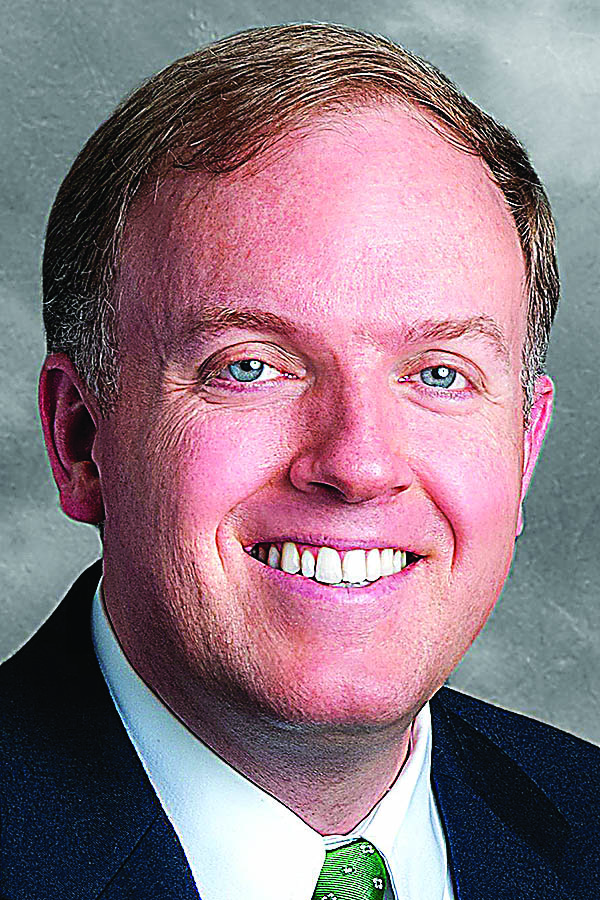Real estate group proposes refugee housing at Riverside Manufacturing
Published 5:00 pm Monday, September 25, 2023

- Riverside Manufacturing opened in 1911 and was once among Colquitt County’s largest employers. It made work uniforms and protective apparel long after many U.S. textile companies had transitioned their work overseas, but in 2014 Riverside ceased its production and other assets were sold off.
MOULTRIE — A real estate marketing group has proposed using the former Riverside Manufacturing facility to temporarily house about 200-300 refugees who would work in the community.
Lisa Vereen Zeanah, whose family owns the property, told Colquitt County Commissioners Tuesday that the Vereen family had been approached by the Boulder Capital Group who wanted to purchase all of the former Riverside Manufacturing property.
“Tonight we have an unusual request for the board to consider,” Zeanah said. “We are asking for the commissioners’ blessing to consider a potential buyers proposal. The deal we are trying to commence is contingent upon your approval and blessing. Without such approval, there is no deal.”
Zeanah said that the Vereen family had signed a letter of intent with the group and she introduced the company’s representative, Michael Korsinsky, who described what they wanted to do with the property to the commission.
Boulder Capital contracts with different government agencies to help facilitate setting-up of refugee housing sites, Korsinsky said.This is the group’s fourth project in six months, he said.
“This would not go for more than one or two years,” he told the commissioners and added that all of the expenses incurred to house and take care of the refugees would be paid for by the government agency that sets up the facility.
He said the contract could be extended after the one or two years is up, if the county agreed.
Immediately, commissioners raised questions and concerns about who would be housed at the facility and what their status exactly was.
“It’s not just random people coming in. Everyone will be vetted,” Korsinsky said.
He told them that the goal was to have the immigrants who were temporarily housed at the facility get work permits and, then, to get them employed in the community. He reiterated that the agency that operated the facility would provide, along with housing, food and medical care. He said the agency might try to use local providers.
“We are here to get a blessing from the county…Everything is paid for and everything is contained,” he said.
“What kind of skills would these people have?” asked Commissioner Barbara Jelks.
David Gault, who was introduced as another associate of the proposed project, said that the refugees were not just Hispanic but could come from all over the world and would have different skills.
Commissioner Paul Nagy asked how many of them would be children and Korsinsky said that the goal was to bring in “able-bodied” individuals who could work. He said that he couldn’t guarantee that there wouldn’t be some children and seniors but that was not the intent.
Nagy also wanted to know if the refugees would be criminally vetted. Gault that that the refugees had already been “processed” and were in the United States and Korsinsky said that he would get more information to the commission on that.
Nagy said that the local medical community was only now recovering from the stresses of COVID. He said the facility would add a burden if it sought to contract medical care locally.
Korsinsky reiterated that the government agency would handle everything, bringing in recreation staff, security and even medical staff, if necessary.
“The goal here is that the county doesn’t have to pay anything,” said Korsinsky.
Commissioner Mike Boyd asked if the refugees could leave the facility or not and Korsinsky said that he didn’t have the answer but could get back to the board with the answer at a later date.
County Administrator Chas Cannon asked what would be the time-line of getting the facility up and running and Korsinsky said that it could be operational in 40 to 60 days after final approval.
As there were questions that the commissioners had that needed to be answered, Cannon tabled the discussion until Korsinsky could come back with answers to the questions. “I’m looking forward to getting answers by the third of October,” said Cannon, which is when the county commission meets again.





